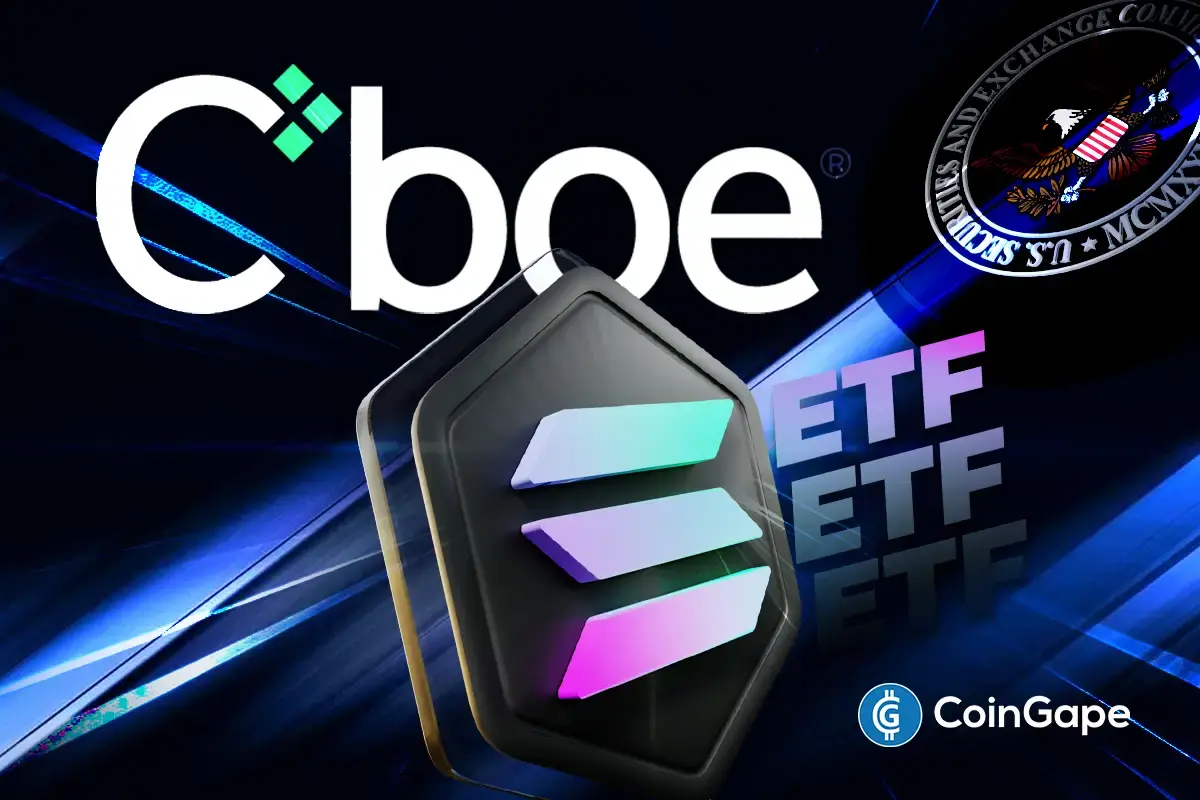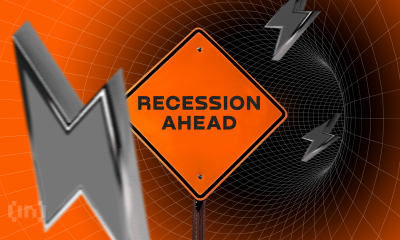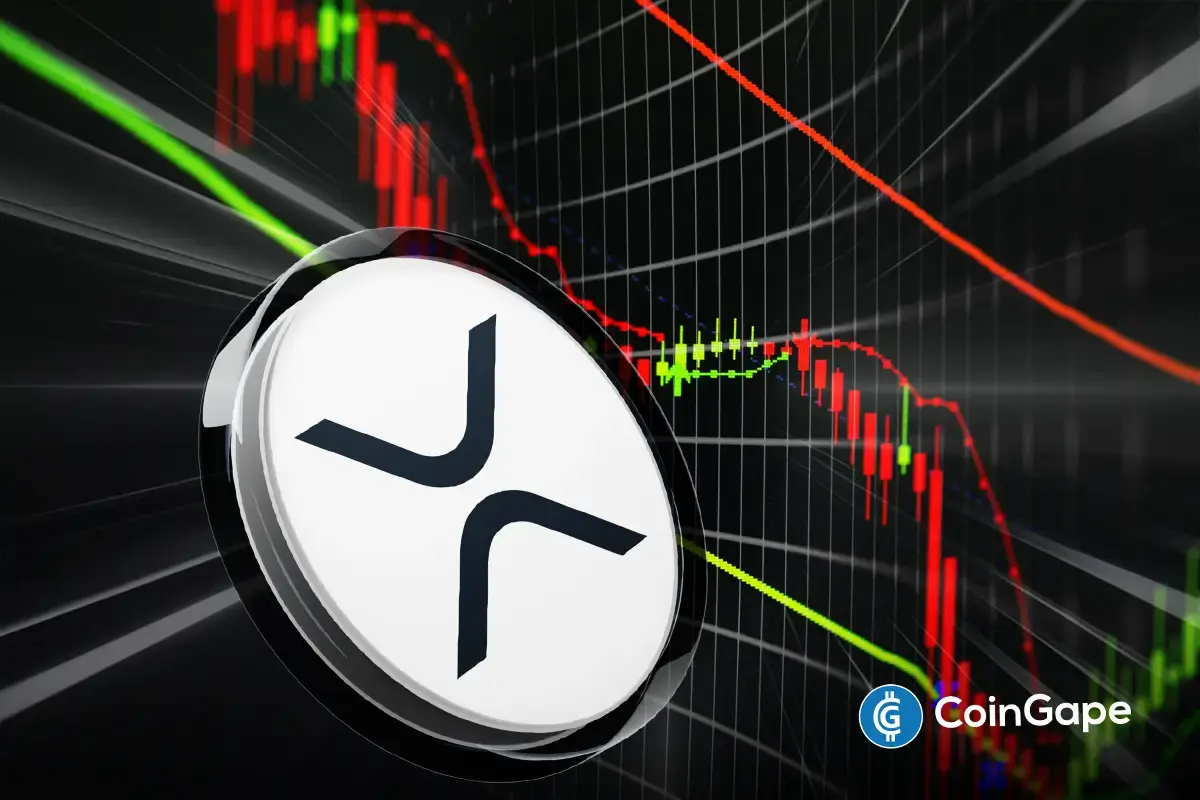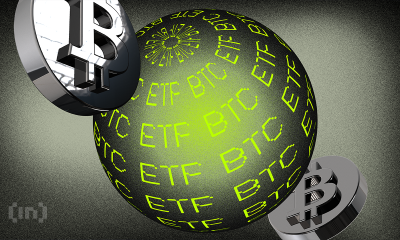Regulation
House to Vote on Combined Crypto Rules and Anti-CBDC

House representatives are gearing up for a vote on two major bills of cryptocurrency legislation. The Financial Innovation and Technology (FIT) for the 21st Century Act and an anti-Central Bank Digital Currency (CBDC) bill, sponsored by Republican representatives, will be on the floor the last week of May.
As a result, this united vote is a landmark event in the governance and prospects of digital assets in the United States.
The FIT for the 21st Century Act and Anti-CBDC Bill
The FIT for the 21st Century Act, also known as HR 4763, is a broad bill that seeks to create a regulatory infrastructure around the cryptocurrency industry. It suggests splitting oversight duties between the Securities and Exchange Commission (SEC) and the Commodity Futures Trading Commission (CFTC).
This legislation, which was approved by the House Financial Services Committee back in July, is aimed at tackling the changing digital assets and making market participants more transparent about it.
🚨SCOOP: The Financial Innovation and Technology (FIT) for the 21st Century Act, aka the comprehensive #crypto rules of the road bill from @HouseAgGOP and @FinancialCmte, is slated for a floor vote in two weeks time. Sources tell me the tentative plan is to combine…
— Eleanor Terrett (@EleanorTerrett) May 10, 2024
The anti-CBDC bill, identified as HR 1122 and introduced by Majority Whip Tom Emmer (R-Minn. ), seeks to prohibit the Federal Reserve from issuing a digital currency to consumers in the first instance. Emmer has criticized the privacy issues and government surveillance, arguing that the digital yuan will only deepen this problem.
The bill, however, was reported favorably out of committee in September and has received the support of conservatives apprehensive about a government-managed digital currency.
Bipartisan Challenges and Legislative Strategy
Merging the two bills into one rule resolution is perceived as a tactical maneuver to simplify the discussion and voting process. Nevertheless, this approach is associated with problems.
Whereas the FIT for the 21st Century Act has received some bipartisan support, Emmer’s anti-CBDC bill has met opposition from the Democrats. No Democrats voted for the amendment to block the CBDC in committee.
Republicans are using this united vote to secure broader support in their camp. Among the groups that expressed concerns over a CBDC were the House conservatives, who wanted to ensure that the interests of such entities were observed by introducing the anti-CBDC bill. Thus, this bill’s inclusion aims to win the votes of Republicans who may be reluctant to endorse the crypto regulation structure.
Potential Impact on Crypto Legislation
The result of this combined vote will be one of the determinants of what comes next as patterns of cryptocurrency regulation in the United States. Financial Services Committee Chair Patrick McHenry (R-N. C. ) is among the leaders who have been instrumental in molding the FIT for the 21st Century Act.
The bill also includes provisions for the regulation of stablecoin and protection for whistleblowers, however, the final text is still uncertain. If the united bills pass the House, they will undergo more scrutiny in the Senate, where bipartisan support will be vital.
Ongoing Debate and Considerations
The discussion of these bills reflects the general questions about the place of digital currency and the government’s control over it. According to a recent statement by Jerome Powell, the Fed will issue the central bank digital currency only if authorized by Congress, which stresses the role of legislative action in this sphere.
Concurrently, the bill has also been criticized by legislators such as Rep. Stephen Lynch (D-Mass.), the ranking Democrat on the House Financial Services crypto panel. Lynch has called the anti-CBDC bill shortsighted, arguing that the US shouldn’t ignore the rise of digital currencies in other countries.
Many other Democrats, including Lynch, worry that adding Emmer’s bill may drive away moderate Democrats who could have supported a wider cryptocurrency regulation.
Also Read:
The presented content may include the personal opinion of the author and is subject to market condition. Do your market research before investing in cryptocurrencies. The author or the publication does not hold any responsibility for your personal financial loss.
Regulation
US SEC Acknowledges Fidelity’s Filing for Solana ETF

The U.S. Securities and Exchange Commission (SEC) has formally acknowledged the filing for Fidelity’s spot Solana (SOL) Exchange-Traded Fund (ETF).
This marks a key development in the financial industry, as Fidelity seeks to list its Solana ETF on the Cboe BZX Exchange. The acknowledgment comes after Fidelity submitted a proposed rule change, paving the way for the potential approval of the product.
Fidelity’s Spot Solana ETF Proposal
The SEC’s acknowledgment follows Fidelity’s filing to list and trade shares of the Fidelity Solana Fund under the Cboe BZX Exchange. The proposed rule change, initially submitted on March 25, was later amended on April 1, 2025, to clarify certain points and add additional details.
The amended proposal aims to list the Solana ETF under BZX Rule, which pertains to commodity-based trust shares. According to the Cboe BZX Exchange, Fidelity plans to register the shares with the SEC through a registration statement on Form S-1.
Fidelity’s experience with crypto ETFs, having launched the Fidelity Wise Origin Bitcoin Fund (FBTC) and the Fidelity Ethereum Fund (FETH), has prepared it for this new initiative. FBTC has drawn substantial interest, accumulating nearly $17 billion in assets, while FETH currently manages around $975 million.
This Is A Developing News, Please Check Back For More
Disclaimer: The presented content may include the personal opinion of the author and is subject to market condition. Do your market research before investing in cryptocurrencies. The author or the publication does not hold any responsibility for your personal financial loss.
Regulation
US Senate Banking Committee Approves Paul Atkins Nomination For SEC Chair Role

The U.S. Senate Banking Committee has voted to approve Paul Atkins’ nomination for the role of Chair of the Securities and Exchange Commission (SEC). The vote, which took place on Thursday, passed with a narrow margin of 13-11, along party lines.
Paul Atkins, nominated by President Donald Trump, now moves one step closer to taking over the top regulatory position at the US SEC.
Senate Banking Committee Approves Paul Atkins Nomination
Paul Atkins’ nomination for SEC Chair has received approval despite sharp opposition from Democratic members of the Senate Banking Committee. The vote was entirely split, with Republicans supporting Atkins and all Democrats opposing the decision.
This partisan divide highlights the contentious nature of Atkins’ confirmation, which had been under scrutiny for several reasons.
The committee’s approval now clears the path for Atkins to proceed to the full Senate for a final confirmation vote. Given the Republican-controlled Senate, it is widely expected that Atkins will secure the necessary votes to take over the SEC leadership. With Republicans holding a 53-47 majority in the Senate, the confirmation process is anticipated to move forward swiftly.
This Is A Developing News, Please Check Back For More
Disclaimer: The presented content may include the personal opinion of the author and is subject to market condition. Do your market research before investing in cryptocurrencies. The author or the publication does not hold any responsibility for your personal financial loss.
Regulation
Kraken Obtains Restricted Dealer Registration in Canada

Cryptocurrency exchange Kraken has obtained a Restricted Dealer registration in Canada. The registration comes after completing a pre-registration undertaking (PRU) process with Canadian authorities.
The exchange has also announced the appointment of Cynthia Del Pozo as its new General Manager for North America. Del Pozo will oversee Kraken’s growth initiatives in Canada.
Kraken Completes PRU Process In Canada
Kraken’s Restricted Dealer registration marks the completion of a thorough pre-registration undertaking (PRU) process with Canadian regulators. The registration places Kraken under the supervision of the Ontario Securities Commission (OSC). This oversight ensures users have access to secure crypto products within a properly regulated local ecosystem.
According to the Canadian Securities Administrators (CSA), the Restricted Dealer registration is one of eight firm registration types in Canada. This particular classification is used for firms that “do not quite fit under any other category.” It also comes with specific requirements and conditions set by securities regulators.
Kraken’s regulatory achievement comes during a period of change in the Canadian crypto sector. Just months earlier, competitor Gemini exchange announced its departure from the Canadian exchange market by the end of 2024. This was a move that surprised many and raised questions about cryptocurrency regulation clarity in the country.
Kraken Introduces New Canadian GM
Del Pozo has joined Kraken to lead its Canadian operations as the new General Manager for North America. She has nearly 15 years of experience in corporate development, operations, and fintech consulting. Del Pozo will help to guide Kraken’s expansion across Canada during this important phase of crypto’s development in the region.
“Canada is at a turning point for crypto adoption, with a growing number of investors and institutions recognizing digital assets as a vital part of the financial future. I’m thrilled to join Kraken’s mission at this critical moment, and to lead our expansion efforts, ensuring we continue to serve our clients long-term with innovative and compliant products,” said Del Pozo.
In her role, Del Pozo will focus on strengthening Kraken’s regulatory relationships and also scaling the company’s presence throughout North America.
Del Pozo also commented on the registration achievement: “This Restricted Dealer registration is testament to the high bar Kraken has always set for consumer protection, client service, and robust security. We’re excited to continue expanding our world-class investment platform and to deliver innovative products that provide real-world utility to Canadians.”
The Exchange’s Continued Growth In Canada
Over the past two years, the cryptocurrency exchange has shown steady expansion in Canada while working through the PRU process with regulators. During this period, the exchange has doubled its team size and monthly active users.
According to the official blog post figures, the firm now has more than $2 billion CAD in total client assets under custody. Kraken has also increased support for some of the most popular cryptocurrencies. It provides several CAD spot trading pairs that enable Canadians to trade crypto without paying expensive foreign exchange fees.
According to Innovative Research Group’s 2024 Investor Survey, 30% of Canadian investors currently own or have owned cryptocurrencies. Likewise, a KPMG Canada survey discovered that 30% of Canadian institutional investors now have exposure to cryptocurrencies, which means widespread adoption across investor types.
Disclaimer: The presented content may include the personal opinion of the author and is subject to market condition. Do your market research before investing in cryptocurrencies. The author or the publication does not hold any responsibility for your personal financial loss.
-

 Market24 hours ago
Market24 hours agoWormhole (W) Jumps 10%—But Is a Pullback Coming?
-

 Altcoin23 hours ago
Altcoin23 hours agoAltcoin Season Still In Sight Even As Ethereum Struggles To Gain Upward Momentum
-

 Market23 hours ago
Market23 hours agoBinance’s CZ is Helping Kyrgyzstan Become A Crypto Hub
-

 Market16 hours ago
Market16 hours agoBitcoin Price Still In Trouble—Why Recovery Remains Elusive
-

 Altcoin22 hours ago
Altcoin22 hours agoHere’s Why Is Shiba Inu Price Crashing Daily?
-

 Market22 hours ago
Market22 hours agoCrypto Market Mirrors Nasdaq and S&P 500 Amid Recession Fears
-

 Altcoin21 hours ago
Altcoin21 hours agoExpert Reveals XRP Price Could Drop To $1.90 Before Rally To New Highs
-

 Bitcoin20 hours ago
Bitcoin20 hours agoWhy ETF Issuers are Buying Bitcoin Despite Recession Fears





















✓ Share: